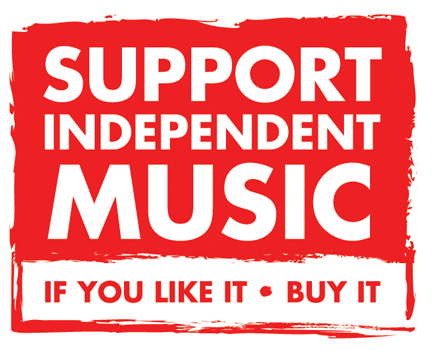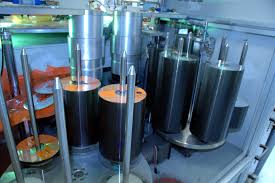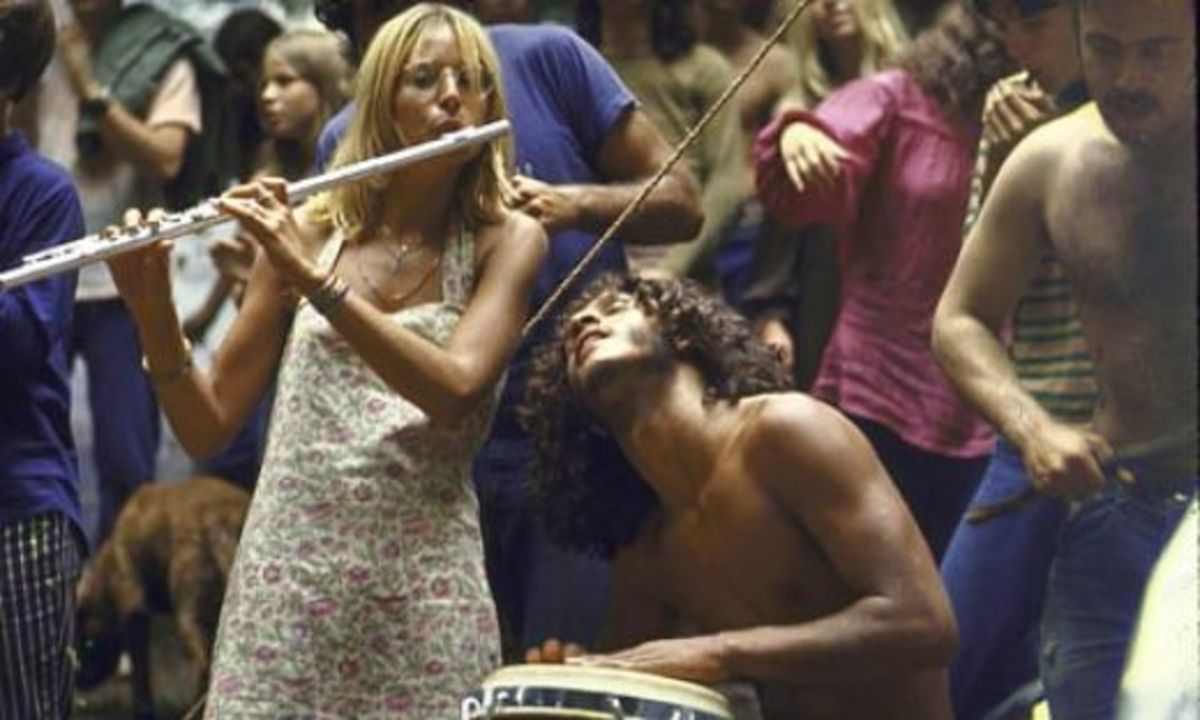Indy Music 101: Artist Development VS Product Development and How You Need Them Both
Indy Musicians Are The Hardest Workers In The Bussiness

Time To Sink Or Swim
It may very well shock some musical artist out there to learn that at one point in time record labels actually took a deep interest in not only the money that was being made by their artists but the artists themselves. This was a very rare oddity known as artist development.
Motown was famous for it's "finishing classes" that took young female artists and molded them into fine classy ladies who were fully capable of being both sophisticated and beautiful at the same time. Stax was often noted for desiring it's artists to take a more active role in the music by learning how to play instruments. These actions not only nurtured a musical and professional growth in the artists but also served to give them staying power within the label itself.
In today's busy body world of professional music more emphasis is now placed on the product the artist can turn out as opposed to the artist as a person or group. Labels want to get as much money from an artist as they can right off the bat and who cares if the artist can last it out for years to come. There will always be another group or singer to come along and steal the show, at least for a little while. This is why we are seeing more and more one hit wonders on the market and less songs that have us singing them 10 years down the road.
On the indy circuit we are somewhat blessed and cursed to not have to deal with the major label blah blah blahs. On the indy music scene we have to do both artist development and product development. These factors must go hand in hand with each other to really ensure a high probability of success. Let's explore how we can use these two factors to not only sell some vinyl as they say but to also really get our foot in the door.
Local KY Group In>Closure
Key Video Points
- Notice that the music matches the dress and the performance.
- Notice how they are all playing very well together.
- The style is reflected in every aspect of the performance.
This is a great local group that put in hard work and it shows in their final product. Notice how with the use of artist development this group seems to be what we call"belonging". They go together.
Great Resource
Artist Development
The first real key to artist development is songs. That is right, the songs you write, sing, mold, and perform are doing more for your career than you ever could actually imagine. Your songs need to have what we often call staying power. Think in terms of past successes. "Don't Stop Believing". "Freebird", and "Living On A Prayer" are all songs people still find themselves humming or singing. They have withstood the course of time and remain popular even to this day.
Sure today's songs are full of catchy little ditties and one liners but do you see yourself singing them ten years from now? How about decades from now? Your songs need to make statements that you not only want to make now but that you can see being made years and years from now.
One key to songwriting is to stay in your niche. Let's say you are a punk band and you want to write a love song and let's face it what punk band does not want to write a provocative love medley? You don't want that song to be about a tire swing on a farm in Vermont. That would probably get you tossed in the dumpster with the last few issues of Metal Edge! But now a song about falling for the butter girl at the local theater would be right up that street for the punk niche. Be wise to what is expected in the style of music you have decided to be a part of!
Now I have got to give you some legal advice. Your songs may be your songs but just try to prove that in a court of law. It is rather difficult if not impossible. Always register your songs with a copyright agency and make sure you have proof of ownership to your music.
The internet age has done wonders for this as well. I like to take finished copies of my music and put them on my website directory. That gives me a datestamp to basically prove that I am the cat who created the music. Also on the legal jargon you need to look into ASCAP, BMI, and SESAC. These are performing rights agencies that will help to ensure that when your music is used you are rightfully paid for it. Remember if the first step to good artist development is songs than you need to protect those assets.
The next step to artist development is your fan base. We call this creating a buzz. It starts with a name. If you are a solo artist than using your name is acceptable but be wise about it. If your name is Dick E. Cheese than maybe your parents did not love you enough and a new approach is merited. A band or group name can be the thing that brings in viewers and listeners and needs to be memorable.
Example

One more look
Sample Band Agreement
- Sample Band Agreement
Throughout the last two decades I have often spoken of the importance of putting together a Band Agreement when you and your fellow band-mates are serious about doing business together professionally. Below you'll find a link to a template for a Band
Name! Niche! What's Next?
Again you need to know the limits and lack of limits your niche may have but the next part is just as important. Clothes make the man and in all honesty they also make the band. If you are a smooth jazz combo you don't want to show up wearing Peter Steele goth make-up and if you are jamming a Miles Davis line in need not be on a 7 string guitar shaped like a whale's vagina! It don't work!
Your appearance needs to reflect your music. It helps to get an audience involved and it also helps to keep them involved. I can honestly say this is a very hard task for some people. I have played in a number of groups in which one person always seemed to be way off kilter. I played in a jazz band were the keyboard player refused to wear anything but ripped jeans. It rubbed the bookers the wrong way and needless to say we did not gig as much as we should have. I also played in a contemporary christian band who help a philosophy that the music was the most important thing so you had to see past the crazy way we dressed, and we dressed very crazy. Fans dug it and it caught on and we did numerous TV spots and even had a place on a television opener.
Remember the first impression people will usually have of you or your group is from a poster of CD cover.
The last step and what I consider the big step for artist development is practice! Always try to be better tomorrow than you were today! If you sing take it serious and try to increase your range and approach. If you are a guitar player than study the craft and be the best guitar player you can be. It might be wise to call this evolving but in all sadness many groups ignore this part of the gig.
Before we move on to product development I want to address a legal issue that sucks but must be tackled. Just because you began a tour with Billy on drums does not mean Billy boy will be around mid swing or toward the end. Bands change. It sucks and it hurts the bro code or friendship vibe but it happens. I always suggest every band sit down and do a simple band agreement form to avoid any conflict that might arise when a member leaves the group. This will help keep songs and things were they need to be. I have enclosed a sample band agreement. Look it over and really put it into perspective on what is expected from everyone to maintain the group.
Designing is easy compared to getting them all made!

All your design and distribution needs!
- CD Duplication | CD Replication | DVD Duplication | Disc Manufacturing
Disc Makers is the Low Price leader of CD duplication, DVD duplication, DVD & CD manufacturing, CD replication, CD/DVD duplicators, Blu-ray and USB flash drives.
Product Development
In a nutshell product development means prepping your product for release to the general marketplace. This also means finding means of distributing your product. The key is finding unconventional and creative ways to sell your products. Before you ever begin your album you need to have a plan in motion on how to make that album work for you. Sadly a terrible CD sales can lead to a really good group not being able to make it in the business.
Let's talk about getting your product ready to go. The first real key is who will record your music. I won't lie in today's music world a lot of good recordings are coming out of do it yourself studios and fly by night recording stations. That does not mean you will want to go that route but that route will save you tons of money in the long run. If you do decide to go with a studio of any sort ask for samples of their releases. You need to hear what they can do and they need to hear what you want them to do.
I have done a few CDs and a great deal of session work and some of the best stuff out on the market in my area is recorded in studios that are right there in someone's home. Just meet the people and you will know if they are the right ones to capture the sound you want for your release.
Recording the CD is one step but what about production? That is a step that I feel needs to be handled with just as much professionalism as the initial recording. You need to have great art for the cover. Just some friendly advice if this is your first release avoid using a group shot. That cover is going to be the draw for potential buyers and you need to give them an image they want to look at and think they have to have that disc.
You can get artwork done on the cheap from sites like fiverr or just shop around on social media. The art is not the only lay out issue. How will you package your CD. In some areas a cardboard sleeve would be a cool and expressive way to do it but maybe in others a jewell case with a traditional insert is the way to go. Do some research and see what works best for you.
You also have to handle the way the CD insert is laid out. Do you do a single insert? How about a fold out with song lyrics so your buyers can sing along? Sit down and decide how you want to go about this.
Now let's go back for a moment before we release our CD. After we record we have to think in terms of mastering. Mastering can make or break your music and is a very touchy process. I would recommend you look to companies like disc makers for your mastering needs and even manufacturing as well.
Remember that CD may be the key you need to start opening musical doors.
In Conclusion
While we did not go to deep I hope we went deep enough to get a feel for how artist development and product development can work hand in hand to make us better musicians, performers, and ultimately artists. It takes a great deal of work to really achieve success in this crazy business but if you can put the work in you can make it! Live long and jam.









